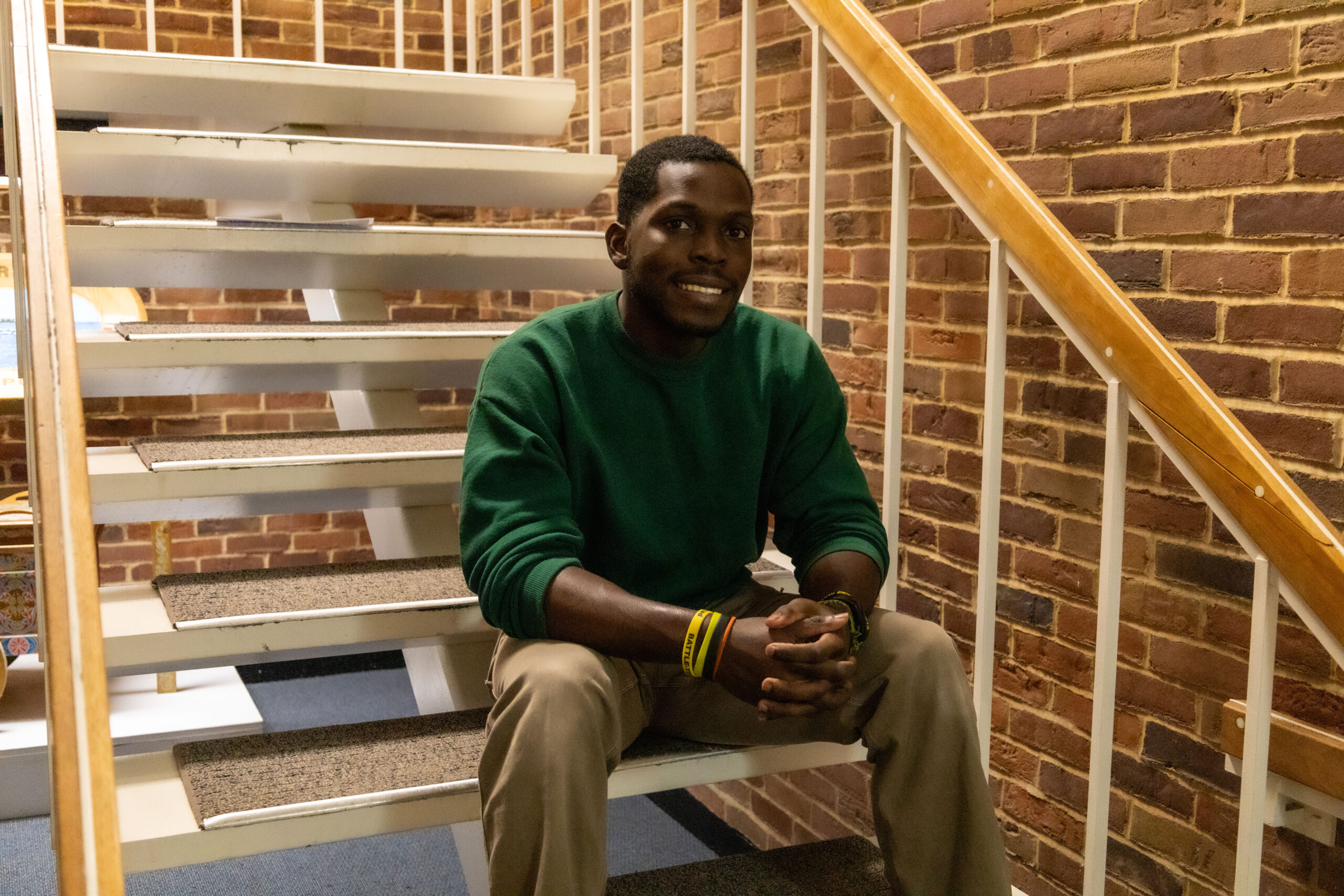A few months ago, someone asked me, “What has your experience been as a Black Creative in a Predominantly White Institution?” It feels like everyone is looking at me with my pants down.
"As kids, we're told that everyone is equal, but as we grow up we all learn that it isn't so cut-and-dry."
— Dontaye Albert
I consider myself an actor, a drummer, a singer…not a black singer.
So when anyone asks me how it feels being a “black” anything, it catches me off guard.
As kids, we’re told that everyone is equal, but as we grow up we all learn that it isn’t so cut-and-dry.
From being a first-generation college student to being a minority, and having little to no representation in my field of study, I find myself alone.
Of course, “There’s always family,” but we’re 1,000 miles apart and are barely able to see each other unless over long breaks or FaceTime with crappy internet.
Here at Goshen College, the isolation has even more weight. I am one of the few BIPOC in the theater department, which I am immensely grateful for, but I’m still the only male presenting Black person.
There’s no one I can relate to.
For the past two years, I have had the privilege of going to the Kennedy Center American College Theater Festival.
There, I’ve seen other schools that have entire groups of African American students.
I’m able to engage in workshops solely dedicated to BIPOCs and work in a cast only with “Black” creatives.
Yet, I feel more alone than before since I will have to come back to Goshen and work alongside people who cannot relate to the struggles that I have to go through.
So why am I here? That’s a valid point. And trust me, it has crossed my mind many times. I wasn’t a good high school student, and higher education seemed out of reach.
Being a Black person, or any person of color, there is this stigma that you have to be exceptional—your exceptionality is what breaks you even with your white counterparts.
It seemed like Goshen College found me exceptional, so I took it, and I still do.
During my sophomore fall, I considered dropping out. Life was hard and I was struggling to fit in.
Of course, it doesn’t seem like that. I was involved in multiple ensembles, I was in different leadership positions, and I was doing fine in all of my classes.
But all of this does not immediately cancel out imposter syndrome and loneliness.
I didn’t drop out, clearly. When I went home that winter break, my aunt said, “A Black man’s liberation is an education.” Yeah, like that’s nothing to take to heart, right?
To answer the question, being a Black creative at a predominantly white institution is lonely.
It’s hard, and I am constantly questioning my right to be here. The theater department is struggling, the winters are cold, and I’m not getting paid.
But performing is my passion. Performance is liberating. Being a creative in times of uncertainty is liberating.
I chose Goshen College. I’ve found people that make my time here worth it and I’ve been able to find small pockets of safety and belonging.



